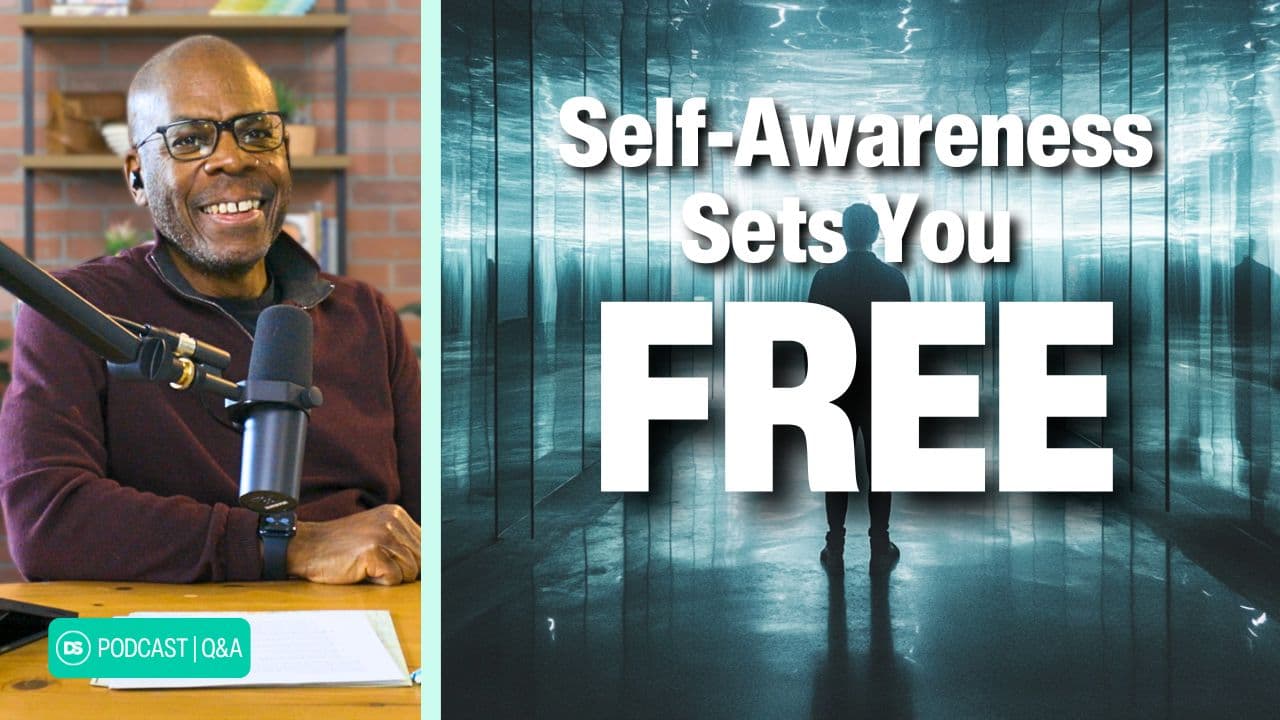Table of Contents
Contents
This post was written in the midst of our world experiencing the COVID-19 pandemic. Though it discusses topics specific to this time, its insights and scriptures can be appreciated at any time.
I am naturally a fearful person. Fear has been both a flawed motivator for me in building relationships and a crippling detractor that has prevented me from pursuing meaningful relationships with other people.
On the contrary, the moments I have lived with courage have led me to some of the most positively transformative moments in my relationships. I’m going to discuss how to find courage in the face of fear.
Our current time requires greater courage in relationships. Because of the grief COVID brings, due to loss of life and livelihood, and the division of social injustice (racism, sexism, ageism, etc.) promotes by emphasizing our differences, we need more courage to pursue familiar or new relationships.
If we are going to make a positively transformative difference in the world, it is going to happen through our relationships. Luckily, with God, we can gain the courage to do just that. We can choose courage over fear.
6 This being so, I want to remind you to stir into flame the strength and boldness that is in you, that entered into you when I laid my hands upon your head and blessed you. 7 For the Holy Spirit, God’s gift, does not want you to be afraid of people, but to be wise and strong, and to love them and enjoy being with them.
II Timothy 1:6-7 TLB
This scripture teaches that with God we all have the potential to be courageous. It is a muscle we must exercise or “stir into flame” for it to get stronger. Why should I exercise and build up my courage?
Because courage is one of the most important qualities that one can develop. As the Winston Churchill quote goes, “Courage is rightly esteemed the first of human qualities because it has been said, it is the quality which guarantees all others.”
Below are three choices we can make to choose courage over fear:
- Don’t wait, initiate – God gives us the courage to enter into relationships with others.
- Don’t conceal, reveal – God gives us the courage to be close to others through revealing our real hearts.
- Don’t just reveal, heal – God gives us the courage to radically change our lives, and the lives of others.
Don’t wait, initiate
So they passed by Mysia and went down to Troas. During the night Paul had a vision of a man of Macedonia standing and begging him, “Come over to Macedonia and help us.”
After Paul had seen the vision, we got ready at once to leave for Macedonia, concluding that God had called us to preach the gospel to them.
Acts 16:8-10 NIV
Paul’s vision from God showed him the potential needs of Macedonia and gave him the courage to take initiative. Macedonia was a place full of people hostile to outside customs, beliefs, cultures, and religion, but Paul’s courage enabled him to face hostility, uncertain outcomes, and unfamiliar people. He concluded that God was the answer to their pain and needs.
When initiating in relationships that present uncertain outcomes or unfamiliar needs, we can be gripped by fear, but every day we have the same opportunity Paul had to make the courageous choice to initiate in relationships.

I remember a friend from church asking me to study the Bible with a friend of his. His friend happened to grow up in a neighborhood close to the one I grew up in.
Initially, I felt great fear and hesitation in building a friendship with my friend’s friend, and I was even less certain of his willingness to build one with me. My friend’s friend is Caucasian and, growing up in my neighborhood, I was physically and verbally abused on numerous occasions due to the overt bigotry and prejudice towards me as an African-American/Sicilian. Initiating in that relationship required me to trust God so that he could make me more courageous.
As my friend’s friend shared his needs during the studies, we both soon realized that, regardless of our external differences, our internal needs were the same and that God was the answer to our needs. Eventually, we became good friends, and he was soon baptized and became a Christian. This experience reminds me of a scripture in Hebrews:
…In their weakness their faith imparted power to make them strong! Faith sparked courage within them and they became mighty warriors in battle,…
Hebrews 11:34 TPT
When we take the initiative in faith, even when we feel weak, God uses that faith to make us courageous for Him in our relationships.
So how do we develop this kind of faith and courage?
But the one who always listens to me will live undisturbed in a heavenly peace. Free from fear, confident and courageous, you will rest unafraid and sheltered from the storms of life.
Proverbs 1:33 TPT
This scripture tells us that courage and freedom from fear come from listening to God. Below are some ways we can access that power to be courageous:
- God’s Word enlightens us through self-awareness (1 Timothy 4:14-16) – Watching our life and doctrine gives us the power to save others.
- God’s Word empowers us by showing us how to pray vulnerably (Luke 11:5-8 NIV) – Shameless audacity makes our prayers powerful, especially when praying for the needs of others.
- God’s Word equips us through spiritual training (Hebrews 5:12-14) – Consistently reading and obeying the Word enables us to become powerful teachers of the Bible.
God provides the courage we need to initiate conversations or friendships with people around us, like our spouses, roommates, friends, and kids.
I have found in my life, the more I read and meditate on the Word of God, the more it is what drives my every behavior, attitude, and outlook on life (Joshua 1:8). We can literally make the Word of God a part of us, and that is powerful! But it takes daily, deep, focused thinking on the Word. (“Meditation: How To Hear From God“)
Pause and reflect
- Who has God given you a vision for and put on your heart to help?
- How will you take initiative and get to know the needs of those in your home, neighborhood, and workplace?
- How can you use the Bible to address both your needs and the needs of others?
Don’t conceal, reveal
After they had been severely flogged, they were thrown into prison, and the jailer was commanded to guard them carefully…
About midnight Paul and Silas were praying and singing hymns to God, and the other prisoners were listening to them. Suddenly there was such a violent earthquake that the foundations of the prison were shaken. At once all the prison doors flew open, and everyone’s chains came loose.
The jailer woke up, and when he saw the prison doors open, he drew his sword and was about to kill himself because he thought the prisoners had escaped. But Paul shouted, “Don’t harm yourself! We are all here!”
The jailer called for lights, rushed in and fell trembling before Paul and Silas. He then brought them out and asked, “Sirs, what must I do to be saved?”
Acts 16:23,25-28 NIV
It takes courage for us to reveal what we believe, think, and feel to others. Though Paul was in jail for talking about God, he courageously continued to do so. He could have had fears about sharing his faith with the jailer, but he chose not to succumb to these. Instead, he courageously chose to reveal what he believed (I Peter 4:8).
We don’t always know the things going on in the hearts and lives of others that are killing them emotionally and spiritually. Deciding not to courageously exercise the vulnerability and sacrificial love it takes to patiently draw out what is in the hearts of others and share what we believe can have damaging results.
Why Is It Hard To Get Deep?
By digging down deep, we start the process toward having a faith in God that is not easily shaken. However, depth takes work. It is not a personality trait or a natural talent, but rather a skill that must be worked at and developed over time.
I have experienced this firsthand. While in training camp for the Carolina Panthers, I was made aware of a talented player who was having a hard time in his marriage. A friend of his informed me of his challenges and suggested I reach out to him as he had visited the church I was attending.
But my fear and selfishness prevented me from being bold and building a relationship with him. He was a starter and I was trying out. I envied his status and secure position. He was eventually traded and I was released and came home.
“Our fear of knowing others’ hearts and revealing what we believe can have fatal outcomes.”
Courage over Fear
Shortly thereafter I received a call from the same friend who initially encouraged me to reach out to him. The friend informed me that my former teammate was shot and killed in a domestic dispute while with his new team.
Our fear of knowing others’ hearts and revealing what we believe can have fatal outcomes. What fears do you need help overcoming? Below are some I have experienced in my own life:
- Fear of failure – can keep us from revealing our hopes (Proverbs 13:12 TPT).
- Fear of rejection – can keep us from revealing what we think, see or believe (John 12:43 NIV).
- Fear of being known – can keep us from revealing what we are guilty about (Proverbs 28:1 MSG).
- Fear of the future – can keep us from revealing insecurities that we won’t measure up or doubt about God’s plan for us (Jeremiah 29:11 NIV).
It takes God’s courageous love to reveal, deal, and drive out our fear. As the Bible says in 1 John 4:18, perfect love drives out fear.
[12] You are always and dearly loved by God! So robe yourself with virtues of God, since you have been divinely chosen to be holy. Be merciful as you endeavor to understand others, and be compassionate, showing kindness toward all. Be gentle and humble, unoffendable in your patience with others. Colossians 3:12 TPT
This scripture gives us a glimpse into the conviction that empowered Paul to love courageously. He knew he was “always” loved by God. When we know God is on our side, moments we feel great fear become disguised opportunities to exercise great courage.
As we’ve seen, prayer is also something that enables us to courageously love (Acts 16:25) so that we can reveal God’s Word to others.
Now, Lord, consider their threats and enable your servants to speak your word with great boldness. Stretch out your hand to heal and perform signs and wonders through the name of your holy servant Jesus.” After they prayed, the place where they were meeting was shaken. And they were all filled with the Holy Spirit and spoke the word of God boldly.
Acts 4:29-31 NIV
When we pray with audacious boldness, God responds by giving us the courage we need to reveal his Word to others and change the world.
As William Wallace says in the movie Braveheart, “Your title gives you the claim to the throne of our country, but men don’t follow titles. They follow courage.” When we courageously love others by revealing what we believe and getting to know their heart, they will be compelled to follow that courage.
Pause and reflect
- What fear can you most identify with is holding you back?
- What specific prayers will you pray to be empowered to both help others reveal what is in their hearts and share what you believe from the Bible?
Don’t just reveal, heal
They replied, “Believe in the Lord Jesus, and you will be saved—you and your household.” Then they spoke the word of the Lord to him and to all the others in his house.
At that hour of the night the jailer took them and washed their wounds; then immediately he and all his household were baptized. The jailer brought them into his house and set a meal before them; he was filled with joy because he had come to believe in God—he and his whole household.
Acts 16:31-34 NIV
It takes great boldness to stick with relationships and help them experience the healing that comes from building a relationship with God. Paul helped the jailer believe in Jesus, which is where real healing begins (Isaiah 53:3-4 NIV).
He also spoke God’s Word to him and helped him be saved, as we see here, through repentance and baptism (Acts 2:38 and I Peter 3:21).
The jailer went from a possible suicide to being “filled with joy.” His heart was healed through gaining a relationship with God.
God rewards our courage. When we help each other make God our greatest priority we experience peace from knowing God is in charge not people. God restores our true sense of worth, a value not based on how the world sees us. We become confident God has a great purpose for our lives and will help us fulfill it. This is the healing God’s Word brings to our lives.
Preach the word; be prepared in season and out of season; correct, rebuke and encourage—with great patience and careful instruction.
2 Timothy 4:2 NIV
For the time is coming when they will no longer listen and respond to the healing words of truth because they will become selfish and proud. They will seek out teachers with soothing words that line up with their desires, saying just what they want to hear.
2 Timothy 4:3 TPT
The question is, will we exercise the courage to be taught by or teach others the healing words of Jesus? It is in all of our nature to drift toward what is comfortable and easy in our relationships.
We stop preparing our hearts for God’s Word. We become full of our own thoughts and proud (Psalm 10:4). We stop believing God’s word is the answer for our family and friends. We settle for “good talks” and rely on mere opinions. We stop being advocates for the greatness of God and seek our own selfish desires.
It takes courageous friendships to help us resist this temptation so we effectively teach and learn from others the healing words of Jesus. These are the words that heal us of the past wounds, pernicious sins, and paralyzing fears which prevent us from truly enjoying our relationship with God and others.
If we are going to experience healing then we will want to become capable learners and teachers of God’s Word. The verses above lay out some essential components to effectively sharing the Word:
- Great patience – long-suffering and perseverance with others
- Careful instruction – considering how to make others successful
- Correct – refers to correcting behavior or false doctrine by using a careful biblical argument to help a person understand the error of their actions
- Rebuke – calls sin into submission; correcting the person’s motives by convicting them of their sin and leading them to repentance
- Encourage – positive life instruction and help to sustain a decision to change
Each of these components requires self-discipline, and helps us bring healing to others.
Pause and reflect
- Who will you invite into your life to teach you God’s Word?
- Who can you help find healing through a relationship with God and his Word?
- Which essential component of learning or teaching do you need help embracing or developing?
When we have the God-given courage to initiate in relationships, reveal who we are, and change, we will be able to inspire others to do the same.
Explore more:
Sam is a former outside linebacker for the San Francisco 49ers. Since retiring from the NFL, Sam has worked in the ministry serving communities in the Bay Area.
Sam is a former outside linebacker for the San Francisco 49ers. Since retiring from the NFL, Sam has worked in the ministry serving communities in the Bay Area.


Newsletter
The Chemistry Lab
by Russ Ewell
A weekly spiritual newsletter about wonder, discovery, and the creative journey of walking with God.
"*" indicates required fields
"*" indicates required fields






